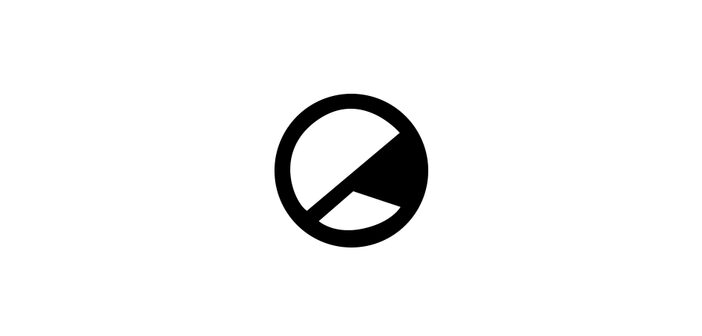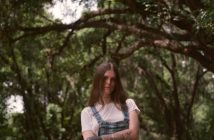Shoegaze was a genre whose ambition destroyed its lifespan. Emerging half-formed from the melting pot of the noise rock, post-punk and garage scenes in the 1980s, it sought to create worlds that are wholly not our own; soundscapes drenched in distortion and feedback, overwhelming volume and unintelligible vocal performances. It all led to something truly alien and mesmerising – a left turn from the status quo that relentlessly pushed the boundaries for bands and fans alike to breaking point. The intrepid spirit of invention that surged forward from the scene wasn’t built, perhaps, to stand the test of time, with founders My Bloody Valentine ebbing out of public consciousness at the start of the 90s to be replaced by bands like The Verve (pre-‘Bittersweet Symphony’) and Blonde Redhead – acts that produced an uprising in the scene in the early 00s. Whilst this ‘Nu Gaze’ scene spawned an incredible array of artists like M83, Youth Lagoon, Vinyl Williams and Neon Indian, it didn’t exactly maintain any of that Shoegaze influence – discarding it for a perhaps more easy-listening sound. Perhaps shoegaze was destined to die out – its stylings too abstract for even its most dedicated of fans, its vision and experimentation shunned by the music press, spurning it as ‘The Scene That Celebrates Itself’. The founding mothers and fathers of shoegaze, My Bloody Valentine, Ride and Slowdive had to find an alternative place for their musical expression in this interim period – to work as musicians but not in such a precarious genre. My Bloody Valentine receded into hiding, Ride put out some sub-average albums then split up, but Slowdive dared to reinvent once more, turning their sound on its head and landing somewhere they perhaps never thought they would. Reforming as Mojave 3, they produced one of the most elegant albums of all time, Ask Me Tomorrow.
To take a glance at the career of Rachel Goswell and Neil Halstead is to observe the history of shoegaze in slow-motion. Forming in Reading in 1989, their first album as Slowdive, Just For A Day, was panned near-universally by the British music press, only a year or so after their sound was hailed to be the “next big thing” by much the same writers. Their popularity waned as the backlash against the genre began, and this negative attention haunted them throughout the release of their next two albums, Souvlaki and Pygmalion. Whilst NME and Melody Maker waited for a second Loveless that would never happen, they panned what would later be considered one of the finest examples of shoegaze out there in Souvlaki and damned the change in pace that would eventually transform into Mojave 3. Such negative press eventually led to Creation Records dropping the band alongside shoegaze contemporaries Swervedriver – putting their economic interests first and foremost as the genre seemed to slip away.
Although Slowdive was, for the foreseeable future, out of action, 4AD signed Halstead and Goswell to release their first album as Mojave 3, Ask Me Tomorrow. The difference between the first Slowdive album and the first Mojave 3 album is titanic – gone is any semblance of distortion or feedback – replaced by gorgeously simple, pared-down tracks that are closer to Nick Drake than Lush. There’s not even a trace left of a band that produced tracks as deafening as ‘Spanish Air’ or soul-shaking as ’40 Days’ – the album slides by almost effortlessly, putting up little fight across its 40-minute runtime. This is not to say that Ask Me Tomorrow is in any way lesser to Soulvaki or Just For A Day, but rather that it taps into a different aspect of Halstead and Goswell’s musical leanings – that drowsy, dreamy beauty that they are so adept at capturing. Opener ‘Love Songs on The Radio’ is the mission statement of the project – shuffling into being with some sparsely plucked notes, a light country twang occupying every inch of its languorous bends and slides. Acoustic strums accompany Goswell’s gentle, swaying vocal performance as the song evolves at a snail’s pace. Much the album follows in the same footsteps, nine tracks of blissful alt-country embellished with graceful piano. There’s nothing more relaxing than playing this album on a Sunday evening, or on a long journey home, or in practically any environment you would need to chill out in. Although hushed and softly-spoken, the creative brilliance that made Slowdive so compelling is thoroughly on show across the breadth of Ask Me Tomorrow, a soporific album that takes its time to get wherever it needs to be.
Although I adore this album, I struggle a little with what it represents. Somewhat of a side-project, Mojave 3 and Ask Me Tomorrow abounded from record labels too cagey to let their artists roam free, a music press more eager to bash the new than get bored of the old and an evolution in the music scene whose growth was stunted by vitriol and a need to sell records. It’s a plaintively beautiful album – a recognition that sometimes shaking up the scene does take a sixteen-year reunion, and that those who experiment are oft doomed to fail by snarky nay-sayers. It’s the first Slowdive project to stoop to superiors, to follow the path more treaden rather than defy authority. Nevertheless, Ask Me Tomorrow is arguably the best of Mojave 3’s musical output, their style becoming a little too worn in by 2006’s Puzzles Like You, but a renewed interest in the shoegaze scene that was previously so shunned by the press led to a Slowdive reunion shortly after. 2016’s Slowdive hailed a return to the band’s signature sound, once again ushering in walls of deafening sound, gorgeous reverb-drenched guitar, and mesmeric live performances. I’m so glad Shoegaze is back in the consciousness of the collective music press, especially for bands like Pinkshinyultrablast or Candy Claws whose bandcamp-dwelling brand of the genre has honestly never received the recognition it deserves, but I hope that, equally, the work of Mojave 3 isn’t left forgotten in Slowdive’s imposing shadow.
Ask Me Tomorrow is available now via 4AD.




